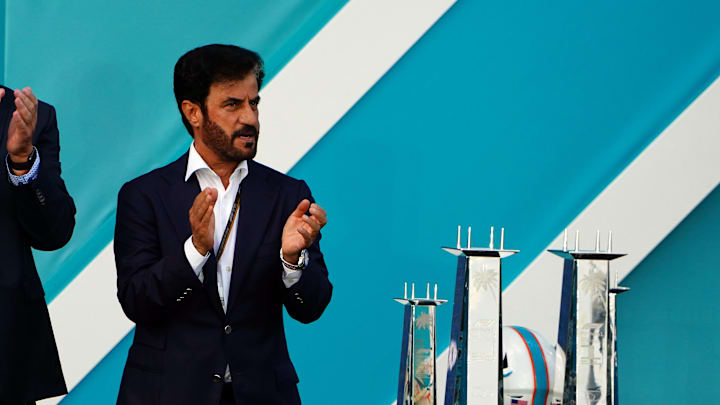FIA President Takes Firm Stance On Expletive F1 Driver Radio Messages - 'We're Not Rappers'

FIA President Mohammed Ben Sulayem has taken a definitive stance on the use of expletive language in Formula 1 broadcasts, urging drivers to monitor their language during races.
During an interview with Autosport, Ben Sulayem commented:
“We have to differentiate between our sport – motorsport – and rap music.
“We're not rappers, you know. They say the F-word how many times per minute? We are not on that. That's them and we are [us].”
The issue has gained prominence following recent World Motor Sport Council meetings and continues to be a subject of discussion within the Formula 1 community. The FIA has already asked Formula One Management (FOM) to minimize the broadcast of expletive language in TV productions, ensuring the sport remains family-friendly.
“I know, I was a driver. In the heat of the moment, when you think you are upset because another driver came to you and pushed you…
"When I used to drive in the dust [and something like that happened], I would get upset. But also, we have to be careful with our conduct. We need to be responsible people.
“And now with the technology, everything is going live and everything is going to be recorded. At the end of the day, we have to study that to see: do we minimise what is being said publicly?
“Because imagine you are sitting with your children and watching the race and then someone is saying all of this dirty language.
“I mean, what would your children or grandchildren say? What would you teach them if that is your sport?”
In recent developments, the FIA has enforced stricter regulations on team radio language in line with this ethos. While the organization had previously approved more radio talk on TV broadcasts, it recognizes the need for rules that benefit the sport.
“We are the ones who actually approved more [radio] talk [on the TV broadcast].
“But we have rules, and the rules are there for the benefit of the sport and the rules are there to be policed and to be respected also.”
The FIA has also updated its International Sporting Code to redefine misconduct, connecting negative speech by drivers to an increase in online abuse towards officials. Ben Sulayem reinforced that the rules must evolve, stating:
“The rules are not there only to stay the same for 30 years. You have to improve, to change, to remove and to add a lot of things. And I don’t do this. We have committees, they study it.
“I didn’t write it, this had to do with the ethics and neutrality of speech. But did you know we had it from 1972? Nobody knew! From ’72!
“You cannot go to a country and abuse a country. Because they pay all of this money.
“If you don’t like it [there], don’t go. If you take a license from the FIA, you have to respect the source that is giving you the licence.
“We are happy with the drivers. Go and have fun. Do what you do best and race.
“And we are happy with the promoter. Go and make money. And more money. But also, we have to respect the sport. I bring the spirit of the sport.
"I try with my background and 40 years of experience to bring also ethics to it, and to bring balance and fairness and clearness. And that is a very, very hard responsibility. But, it’s doable.”
